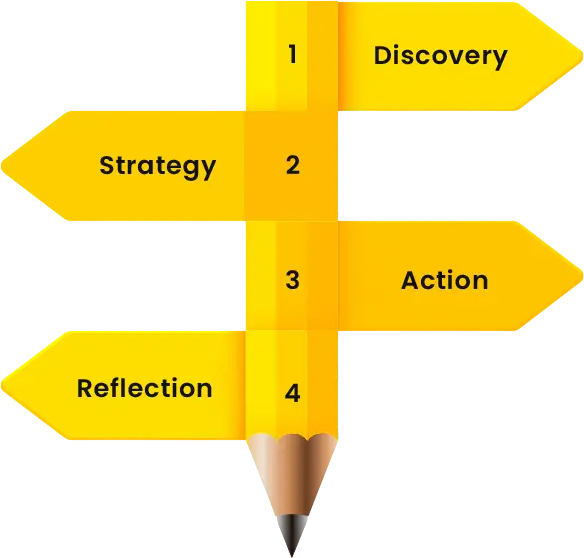In a world that often seems fast-paced and demanding, it’s not uncommon for individuals to grapple with anxiety and depression. The good news is that there are natural, self-help approaches that can empower you on your journey towards mental well-being. This blog aims to provide a comprehensive guide on how to beat anxiety and depression naturally, offering insights and practical strategies that can be incorporated into your daily life’s best ways to relieve stress.
Anxiety and depression are complex mental health conditions that affect millions of people worldwide. Understanding these conditions is the first step towards overcoming them naturally. Anxiety is often characterized by excessive worry and fear, while depression involves persistent feelings of sadness and a loss of interest in daily activities. Recognizing the symptoms and common triggers is crucial in developing effective self-help strategies.

Physical activity has been proven to have a positive impact on mental health. Whether it’s a brisk walk, a yoga session, or a workout at the gym, exercise releases endorphins—the body’s natural mood lifters. Incorporate activities you enjoy into your routine to make exercise a sustainable and enjoyable habit.
Establishing a consistent sleep routine is essential for mental well-being. Create a calm and comfortable sleep environment, avoid stimulants before bedtime, and aim for 7-9 hours of quality sleep. Quality sleep plays a significant role in mood regulation and overall mental health.
Paying attention to your diet can positively impact your mental health. Include mood-boosting foods such as fatty fish, nuts, whole grains, and fruits and vegetables. Limit the consumption of processed foods, caffeine, and alcohol, as they can exacerbate symptoms of anxiety and depression.
Mindfulness involves being present in the moment without judgment. Practicing mindfulness meditation can help calm the mind and reduce symptoms of anxiety and depression. Start with short sessions, focusing on your breath and gradually extending the duration as you become more comfortable.
Deep breathing exercises are simple yet powerful tools for relaxation. Incorporate deep breathing into your daily routine, especially during moments of stress. Breathe in deeply through your nose, hold for a few seconds, and exhale slowly through your mouth.
Progressive muscle relaxation involves tensing and then relaxing different muscle groups to reduce physical tension. Practice this technique regularly, starting from your toes and working your way up to your head. It’s an effective way to release built-up tension.
Cognitive Behavioral Therapy (CBT) is a therapeutic approach that focuses on changing negative thought patterns. Keep a thought journal to identify and challenge negative thoughts. Replace irrational thoughts with more balanced and positive alternatives.
Cognitive distortions are exaggerated or irrational thoughts that contribute to anxiety and depression. Work on restructuring these distortions by recognizing and challenging them. Replace negative thoughts with realistic and positive perspectives.
Social support is a powerful antidote to anxiety and depression. Build a strong support network of friends, family, and loved ones. Share your feelings and experiences, and don’t hesitate to seek help when needed.
Join clubs or groups with shared interests, volunteer in your community, or participate in social activities. Connecting with others fosters a sense of belonging and reduces feelings of isolation.
Nature has a profound impact on mental well-being. Spend time outdoors, whether it’s a walk in the park, a hike in the woods, or simply enjoying your garden. Nature therapy has been shown to reduce symptoms of anxiety and depression.

Self-care is not selfish; it’s essential for mental well-being. Prioritize self-care activities that bring you joy and relaxation. This could include reading, taking a warm bath, practicing a hobby, or spending time with loved ones.
Keep a mental health journal to track your mood, thoughts, and progress. Reflect on achievements, no matter how small, and celebrate your successes. Recognize that overcoming anxiety and depression is a journey, and every step forward is a victory.
In conclusion, beating anxiety and depression naturally involves a holistic approach that addresses various aspects of your life for how to learn self love. By incorporating these self-help strategies into your daily routine, you can empower yourself on the path to mental well-being. Remember that seeking professional help is a valuable and courageous step, and these natural approaches can complement therapeutic interventions. Embrace the journey of self-discovery and resilience as you take proactive steps towards a healthier and happier life, ensuring a brighter future.
Click here to start your journey today!

Colloboration Inquiries:
What’s The Fear LLC is an active member of the community and wants to help promote and participate in impactful projects.
Client Support:
What’s The Fear LLC is dedicated to responding to your questions, concerns and feedback in a timely manner.
Copyright © 2024 WhatsTheFear LLC | Unlimited Personal Growth